Fear
The tenor of our times
Fear.
Dave Greene is right to name this the central emotional valence, the obstructing obstacle, of our time, at the conclusion of his annual state of the dissident right. Greene’s outline of the Eight Antitheses that unite the dissident right is thorough and accurate, and his essay is worth reading for those alone, but his diagnosis of fear as the animating spirit of the age hits the nail on the head.
Over twenty years ago now, we declared war on terror; a generation later, we are ruled by terror. The public discourse revolves around peoples’ fears, most of them imagined. Many spend their lives petrified at the prospect of normal social interaction. Women are scared that men will rape them, and men are scared that women will rape them in the courts. Both leftists and rightists are terrified that the other, if given free rein, will drag the world into a dark age, though only one of them is right. All of our great public efforts are either to mitigate this future catastrophe or that dire present threat, or they are about furiously not acknowledging some insoluble and therefore inevitable future disaster, while studiously ignoring some entirely soluble ongoing emergency which those who could solve delude themselves they can profit from.
It shouldn’t be surprising that the war on terror ended up making us chronically terrified. That’s the track record for these things. Even back in the 1990s we knew that. The war on poverty generated an obscenely inflated welfare underclass while systematically slowing economic growth, thereby generating poverty twice over. The war on drugs led to a society of drug addicts, in which every fifth person is on at least one kind of pill, and most of the rest are self-medicating in other ways. Instead of weed (legal now, in any case), we have fentanyl and meth. Victory!
When Washington declares war on something, it invariably produces more of it. This seems perverse until you realize that wars on abstractions are simply how managerial bureaucracies extend their bases of power. A war that can never be won is a war with job security. A war that gets worse the longer and harder you fight it is even better, because this generates growth.
Washington’s current wars seem to be on racism, baseline human sexual normalcy, men, and multipolarity; the latter is really just a fancy word for the growing tendency for other countries to not do what Washington tells them to because, in general, they prefer being racist to being erased, they think the butt stuff is weird, they don’t want to be castrated, and since they are not castrated, they are still capable of not liking to be told what to do. Sure enough, all of these wars, whether cultural or geopolitical, are steadily generating the very things that they’re trying to stamp out. Racism stocks have reached prices they haven’t seen in generations, thanks to sustained decade of all-out full sector push by the media, corporate, educational, and public sectors, all doing their part to push that line up, up, up. Meanwhile, the war on multipolarity seems in general to be doing a fantastic job of generating more multipolarity.
The longer Washington wages its cowardly war against Russia, China, Iran, and I guess now North Korea, the more Washington’s standing in the world is reduced. I say ‘cowardly’ of course because the war is not waged openly: formally, no war has been declared by Washington or any of its core NATO allies against any of the obvious belligerents. It’s all done through proxies which Washington pays to train and arm and die on its behalf, funding it all with a money printer whose brrrring has gotten defeaning. Or it’s done through sabotage; let’s not forget Nordstream, which kicked the legs out from under Germany’s, and therefore Europe’s economy, in perhaps the most breathtakingly cynical act of strategic sabotage against a supposed ally that one might imagine. Washington doomed Europe in order to ensure that Europe would stay attached to Washington. The whole world sees what Washington is doing of course, and is frightened lest it happen to them, but also disgusted that it happens at all; the latter emotion is becoming increasingly dominant, however, because Washington is becoming less frightening every day.
Washington could not even coordinate an orderly retreat from Afghanistan; its wunderwaffen have made little impact on the Ukrainian battlefront; even combined with its vassals, it cannot match levels of armament production that come effortlessly to its adversaries; its pier in Gaza fell apart uselessly; its mighty navy has so far been utterly powerless to stop a blockade imposed by some obscure tribe of desert Arabs. Then there’s the big fail, Washington’s attempt to nuke the Russian economy by locking it out of the SWIFT system. The Russian economy is doing fine, in fact better than fine, but SWIFT on the other hand is swiftly becoming irrelevant. The dollar’s global reserve status is on borrowed time, and everyone knows it.
I don’t think anyone’s more terrified right now than Western elites. They know they’ve fumbled the ball, that they’ve lost their footing, and they’re flailing around weightlessly as they try to catch it without faceplanting. None of their plans are really working. None of their usual levers of control are as effective as they used to be; some, such as the media, have almost stopped responding altogether. Their people are turning against them for a dozen different reasons, all of them excellent. Their great economic machine is sluggish, its components grinding together and seizing up. Their enemies abroad are on the march, or mobilizing. It’s all coming for them at once, and they don’t appear to have any idea what to do. You’re seeing that deer in the headlights look a lot now from prime ministers and presidents, and it isn’t always because of dementia. They’re in over their heads. Children, playing a game that became all too real when they weren’t paying attention.
I think maybe the whole AI hype bubble is driven by this ruling class fear. They know they’ve lost the people’s confidence and trust, they know they aren’t going to regain it, and they know they aren’t smart enough to solve that, or anything else. If they can punt the ball1 to a general AI, a genuine silicon superintelligence, they can continue to rule as proxies in its wireless penumbra. They can pass on their problems to the digital oracle, an entity of pure rationality, untainted by the emotions that slosh through hormone-soaked glands, supremely unbiased by biology or any common human prejudice. AI is a sort of desperate Hail Mary, a last hurrah technological fix that either solves all of their problems, or doesn’t, in which case they’re done for. Things have gotten so bad that honest financial services advisors have finally started listening to those weird Kurzweilians nerd hippies in Silicon Valley, who have been microdosing their eschatological Singularity into being for decades, one all-night hackathon at a time.
While AI clearly works, strictly speaking, and will undoubtedly prove useful in the future, we can all see already that machine governance just isn’t going to work. The most advanced existing model can’t even formulate the tedious elements of a standard preschool literacy program correctly. When the hype bubble bursts – and it will, as all bubbles do – it will probably take the stock market with it, given that NVIDIA is the only thing propping the markets up right now, along with the last desperate hope of the global managerial class to hold on to power.
So much for the regime’s limpets and their chatbot saviour. What of we men of the right? What are we so frightened of?
Of course the propagandists and their glassy-eyed hylics would insist that we are frightened of homosexuals, women, Islam, and/or foreigners. There’s a certain, very limited truth to that. For understandable reasons such as ‘not wanting to get murder-raped’, French women in mid-sized cities are now terrified of going out alone in public.
But by and large this is nonsense. Almost no one is afraid of gays, for instance. Sure, no one wants to get GRIDS, but pathological fear of homosexuality is not a widespread mental health condition and never has been. The more common emotion is disgust; ‘homoaidia’ would be a more appropriate label, but of course this cannot be used. It would give the game away. ‘Homoaidia’ would too honest, and any honesty at all is too much for our regime, which hates the truth because it fears reality.
Besides disgust, anger is far more common than fear when it comes to these subjects. Anger that our public spaces are suffused with sexual perversions that we are required to pay obeisance to; anger that our women have been yasslit into spiteful insanity; anger that our native lands are being handed over to alien peoples by our treacherous rulers; anger that our streets are full of filth and crime; anger that our future has been stolen.
But that is not to say that we are not afraid.
After all, why do we endure all of this? Why do we practice tolerance? It is certainly not because we value tolerance, as we are endlessly instructed we must, by people whom we despise, and whose false values we repudiate.
We obey because we are afraid of losing what little we have. Our meagre savings. Our 401Ks and RRSPs. Our bullshit email jobs. Our mortgaged houses. Our ten-year-old used Hondas, driven on a lease-to-own basis. We are still just comfortable enough that we fear being uncomfortable, and we fear that open defiance of the regime will lead it to turn its beady eyes upon us – fire us from our jobs, kick us out of school, kick us off of social media, incite our friends and family and professional colleagues to ostracize us, put us on no-fly lists, and freeze our bank accounts.
There is a great irony here. At precisely the time that the rest of the world is rapidly losing its fear of Washington, those of us within the distended belly of the wheezing, corpulent beast are all but paralyzed by our fear of it.
Is this not just a little bit pathetic?
I do not exempt myself from this judgment. Like most, I keep my head down, within reason, for instance by writing under a pseudonym. And although I do essentially nothing but write, which is to say complain impotently about things on the Internet, still I experience the occasional frisson of paranoia whenever I go through an airport, for example. Will this be the day that I find I’ve been added to a no-fly list? Or the day the knock on the door comes from the police, to deliver charges for violation of some new hate speech statute? Or the day I get doxxed? Or ... well, you get the idea.
I think many are paralyzed by this kind of fear, both within the rightist network, and beyond. Everyone hates the pretense and hollow pointlessness of e-mail jobs, the endless meetings and silly box-ticking, the tyranny of HR troons and gormless MBAs with soft hands, softer voices, and even softer brains. Even those who do not bridle at the impositions of ESG and DIE find such a life unfulfilling. So why put up with it? Why continue working for such people? Is it not largely fear of uncertainty, of what might happen if you give up a steady paycheck from a large institution, in favour of taking a chance on yourself, and going into business independently?
It’s a similar fear of the unknown that stays the hands of the regime’s domestic opponents. If we sweep them away – what then? Civil war? What does that look like? Is there not the risk that in our attempt at a restitution of sanity, we destroy everything? Are lives of steadily diminishing prospects amidst the slowly crumbling ruins of our civilization not, perhaps, to be preferred to the possibility of utter catastrophe that is opened by any sort of bold action? The regime may be a hollow tiger made of papier mache, but if we bludgeon that pinata, is there not the risk that it will explode, not with candy, but with fireworks? Better the devil you know, and all.
Some will say this is cowardice, and it obviously is, but I note that nonetheless, you have probably not started doing anything more impactful than sounding off on social media, yourself. Maybe you have, but the vast majority of you haven’t. The evidence for this is clear. Just look outside.
This paralysis cannot last forever. Indeed, there are signs everywhere that it is starting to crack – just look at the European elections, although I worry that whatever milquetoast populists manage to squeak into power when the modal European voter overcomes their fear of Austrian painters and Italian spaghetti-bundleism, it will be too little, too late.
Look, I’m not sure what to do about the fear problem. I hate it as much as anyone. It isn’t just fear of this or that specific thing, it’s a generalized fear of risk in its entirety. Managerialism rules by mitigating risk; to whatever degree the people fear risk, managerialism’s rule is extended and deepened. The result has been the Safety First culture that wraps our world like a straightjacket. Safety First needs to be locked up in a hermetically sealed safe space and left to gibber to itself.
But yelling ‘man up’ doesn’t seem like it’s going to work on a people who think manliness is something you need to be performatively secure in by wearing heals with your sundress.
It’s a bit of a platitude to say that “fear is defeated by love”, and maybe that’s true in some cases, but I’m not sure how helpful it actually is. Love of what, precisely? What love can we invoke to dissolve the grip of an inchoate fear that suffuses everything, seeming to come from everywhere and nowhere?
God, perhaps, is one answer – and indeed this is the answer that Greene gives, advising us to find refuge in bonds of personal loyalty and friendship with those who deserve it, including of course finding time for a relationship with a personal God. There’s something to be said for that. Defeating fear is one of the strengths of religion. Fear of death is the death of freedom, and the man who knows he will live forever is far less prone to fear of death.
The strategy of memento mori might be helpful here, as well. There are many far worse things than death, to be sure, though you would not know it from the way we moderns behave. Simply reminding yourself that you will die, that this is inevitable, and that it will almost certainly be horrible, is a great way of establishing perspective. Will something kill you before your time? No? Then why are you so afraid of it? Whatever happens, life will go on ... until it doesn’t, and there’s not a blessed thing you can do about that, so why are you worried about it?
And if death isn’t that scary, what is it that you’re really afraid of?
Thank you for taking the time to read this. Of course, this is the part where I ask you to
and
but especially to subscribe, as the share button doesn’t do much in the age of the social media platform wars. I’m especially grateful to my paid subscribers. It amazes and humbles me every day that so many of you give me the chance to support myself by writing for you. It seems like some kind of daydream, sometimes. It’s hard to properly express the depth of my gratitude for the opportunity you’ve all given me.
Aleksandar Svetski’s Bushido of Bitcoin is now available for pre-order. For the past several months I’ve been helping him edit it, and it’s been a fascinating project to assist with. Svetski meditates on the warrior virtues of feudal Japan, medieval Europe, and the Hellenistic age, asking how these can be adapted to the coming diamond age of cyberpunk multipolarity. There’s a Kickstarter, which is very close to its initial goal has passed its initial goal and is now into stretch goal territory. The promo video is amazing, and worth watching for its own sake:
Which assumes they’ve successfully pulled off their acrobatic pirouette and caught the ball I previously said they fumbled.



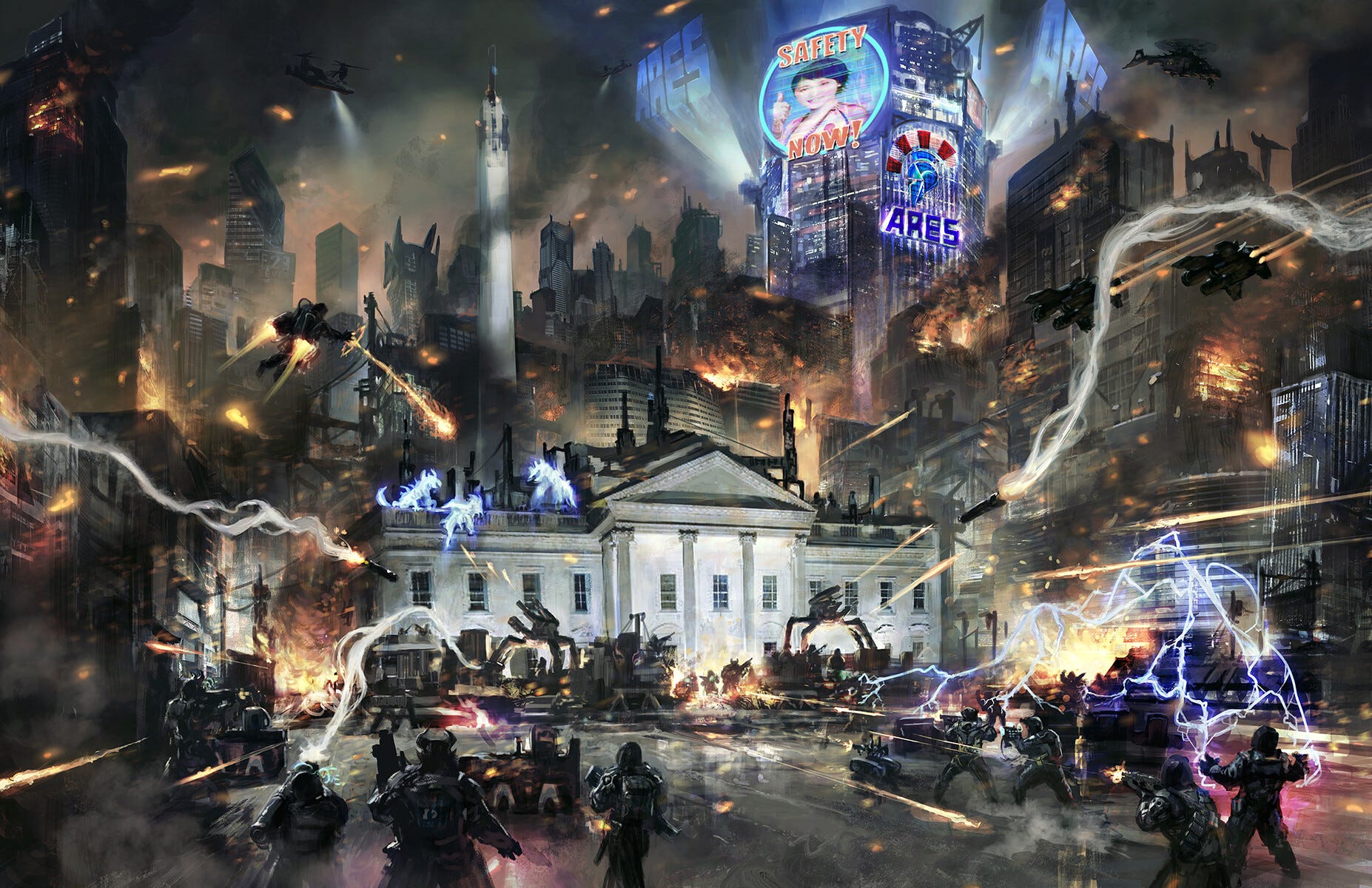
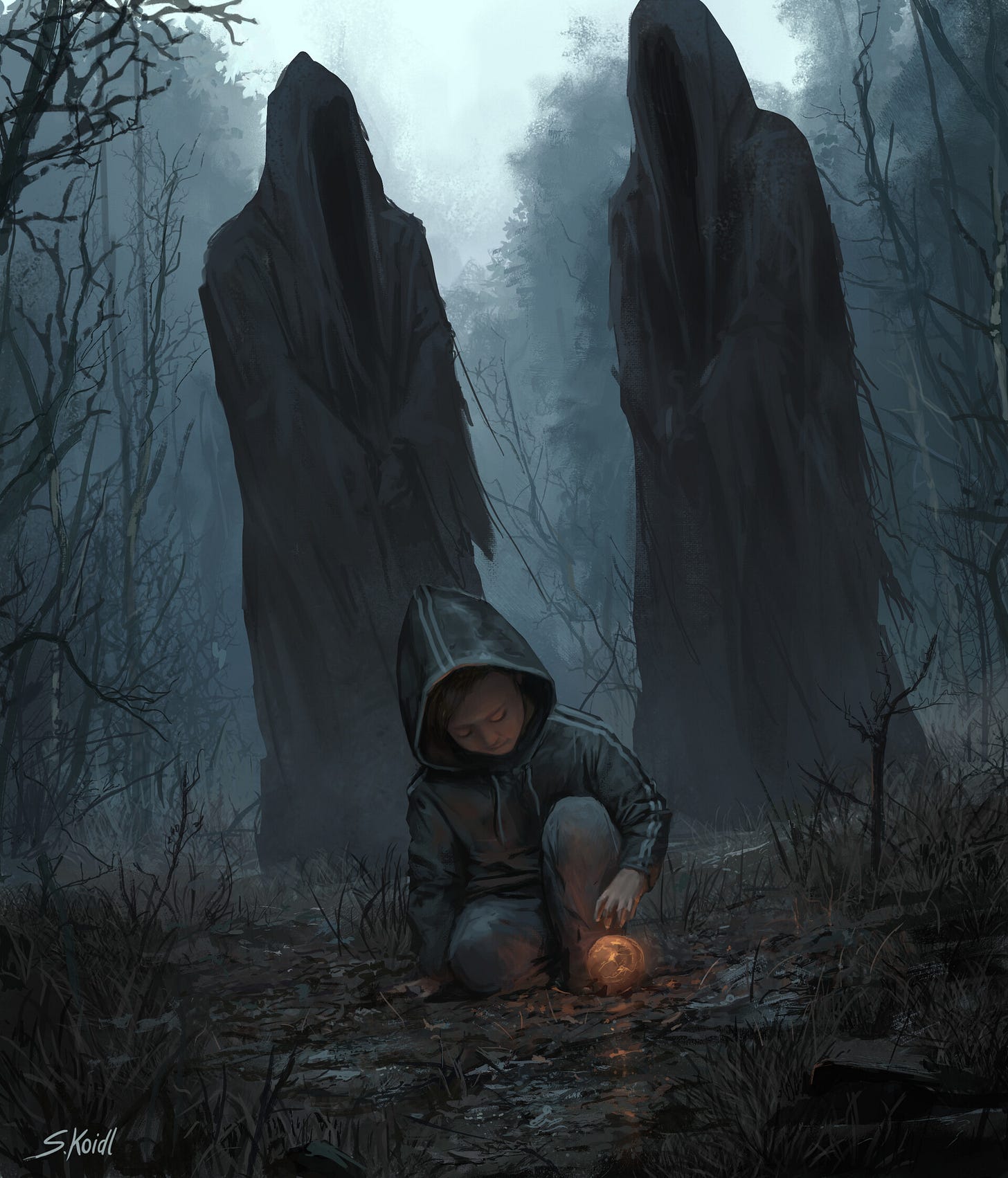

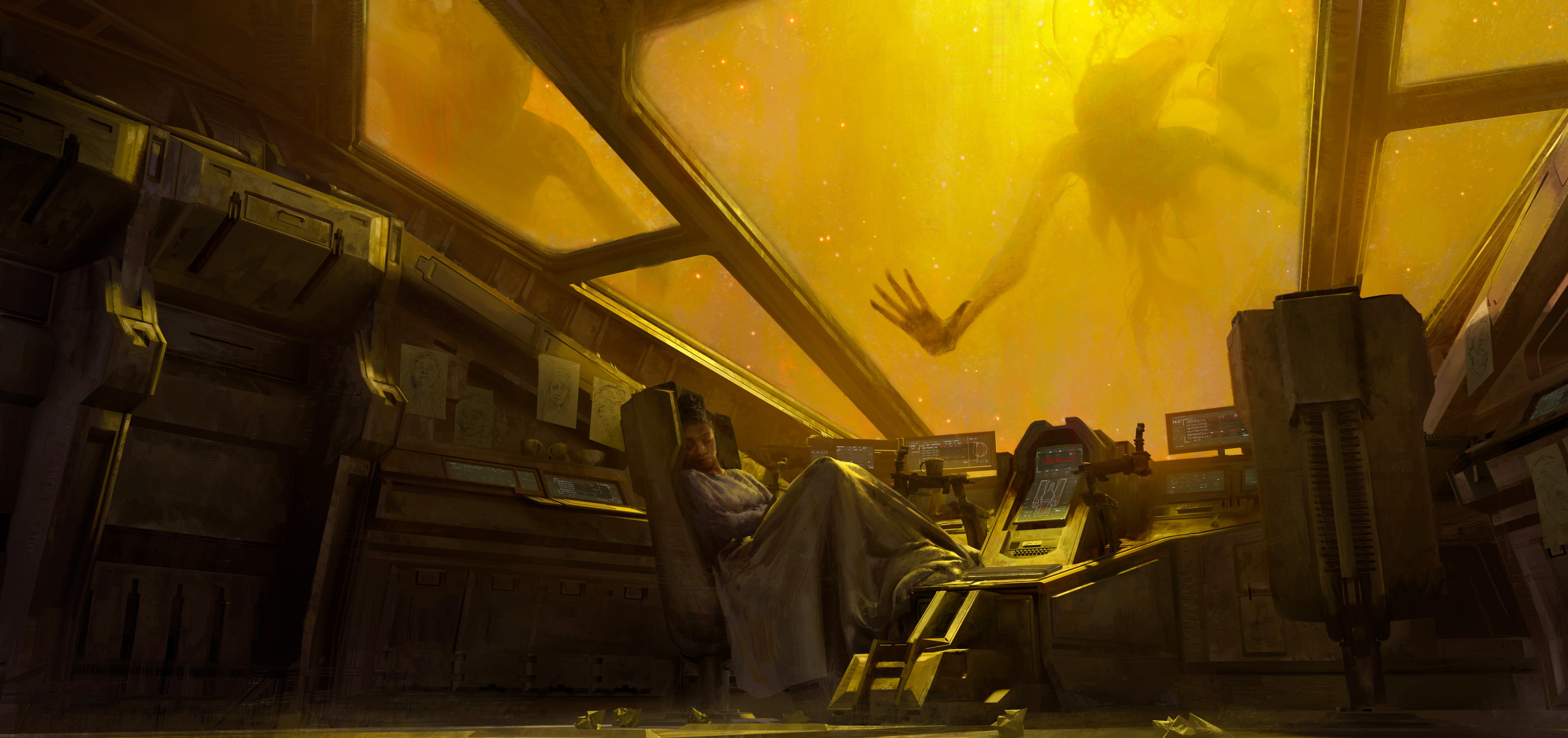
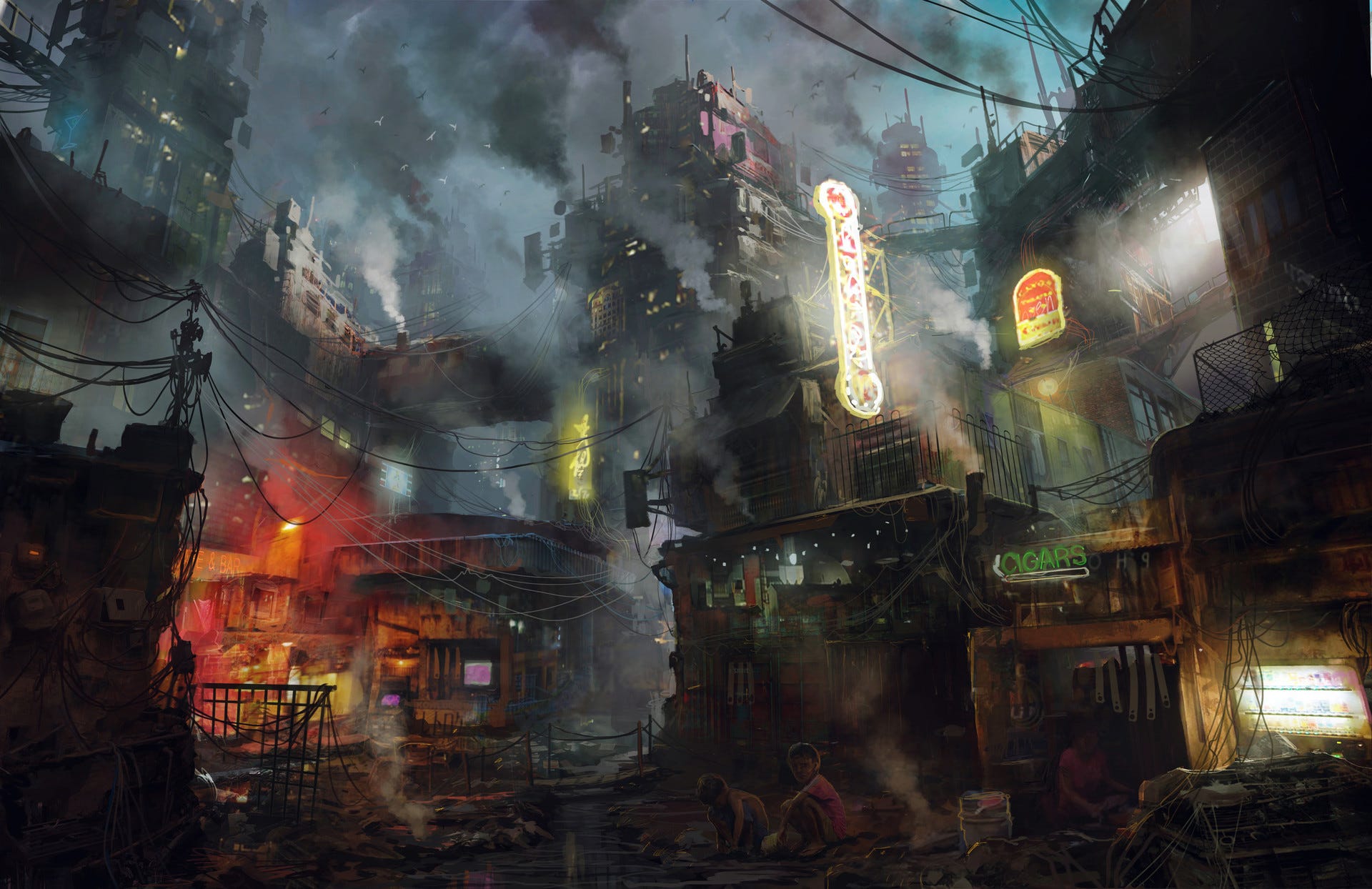

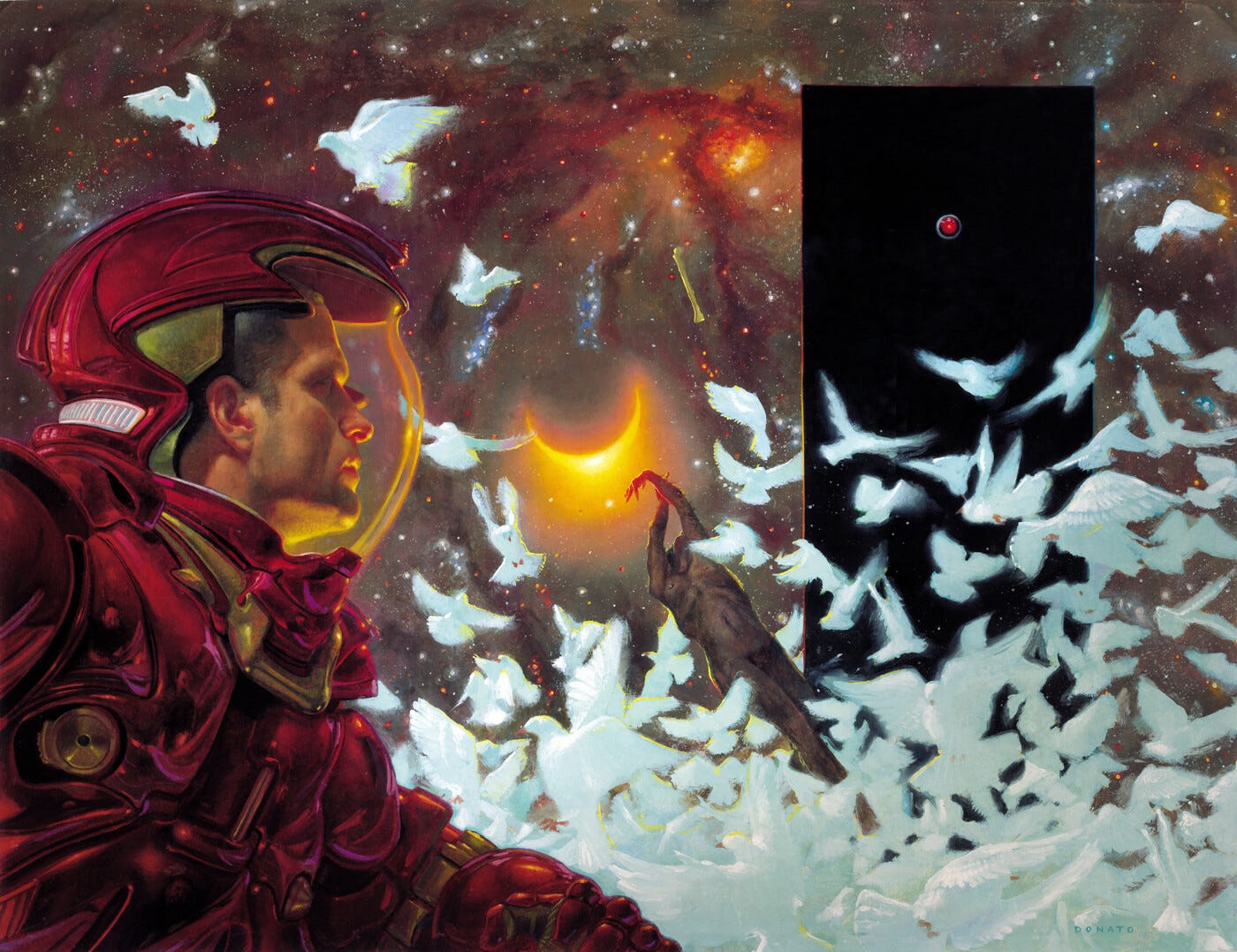
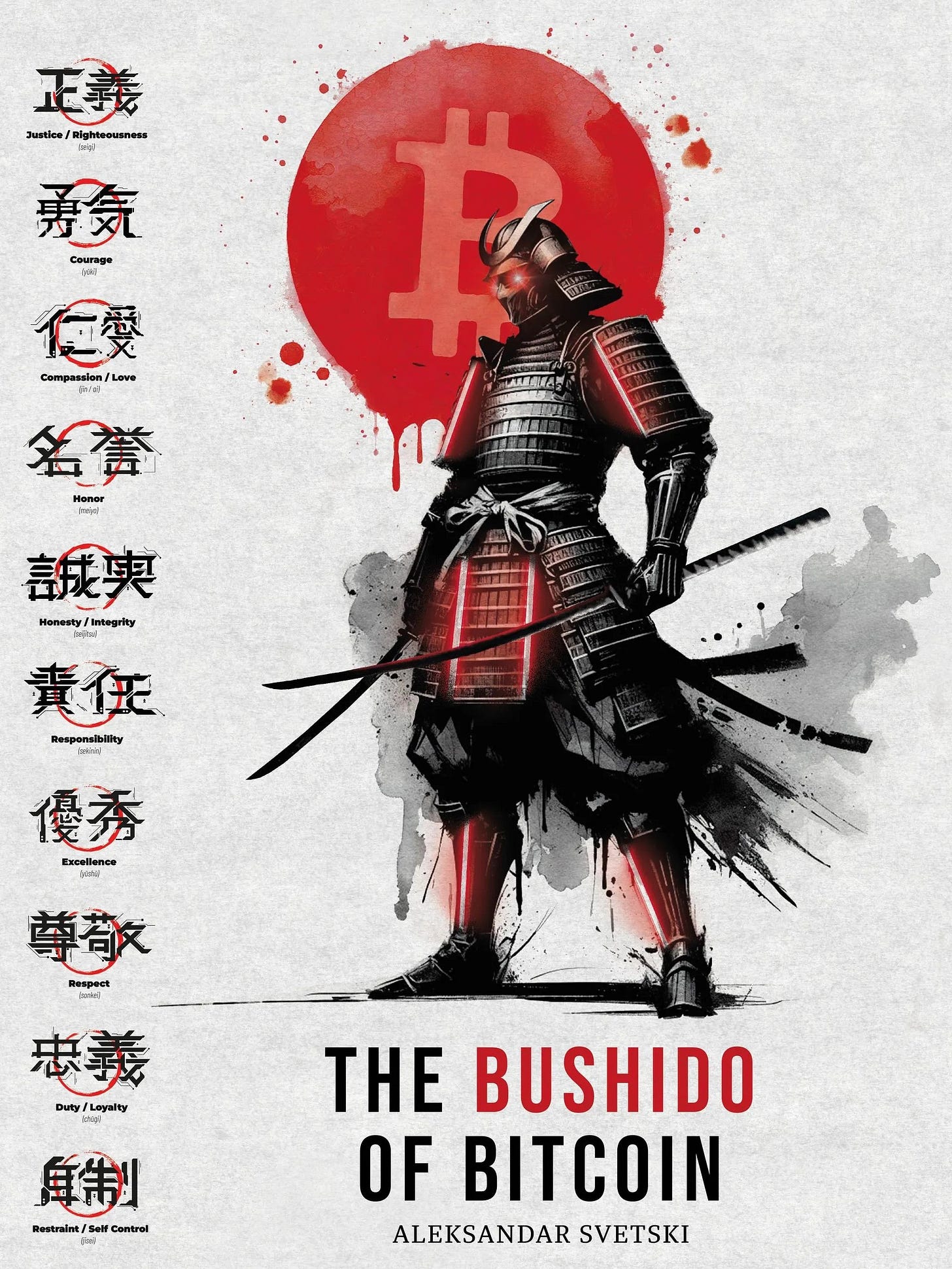
Quick comment without reading any comments. Older readers, with all the things you state - a house, a 401k, money in the bank, a steady paycheck, health - fear the loss of all that, true. We aren't Hamas, continually reborn out from under the utter destructiveness of the IDF boot. The Canadian truckers showed us what the security state will do to you, with digital currency, demonetization, weaponization of law, the wave of the future in suppressing dissent. The weaker the Empire gets, the more out in the open this becomes. Many of us grew up poor, and that makes the animal brain even 'less' likely to rock the boat - who wants to go back to that? Those of us with a taste of failure (I almost lost everything over a 3-year disaster recently), worry about the distant and more recent past, and, like you said, choose to turn away, as you say, out of fear of losing what we have, and fear of our families losing too. But there's another reason, maybe even deeper - let's say one finally begins to resist all the humiliations and wish to create something new or whatever it is you think we ought to be doing, the real, core shaking fear is that any such blip of resistance will be worthless. Not even 15m of fame. To overcome the fear of loss, and the fear of meaninglessness, one needs a purpose, one needs hope to risk all that. What will provide that? What is the thing we should be doing?
Banger. Fear is the mind-killer. It is also destroying the West.
From Apocalypto: "Those people in the forest, what did you see on them? Fear. Deep rotting fear. They were infected by it. Did you see? Fear is a sickness. It will crawl into the soul of anyone who engages it. It has tainted your peace already. I did not raise you to see you live with fear. Strike it from your heart. Do not bring it into our village.”